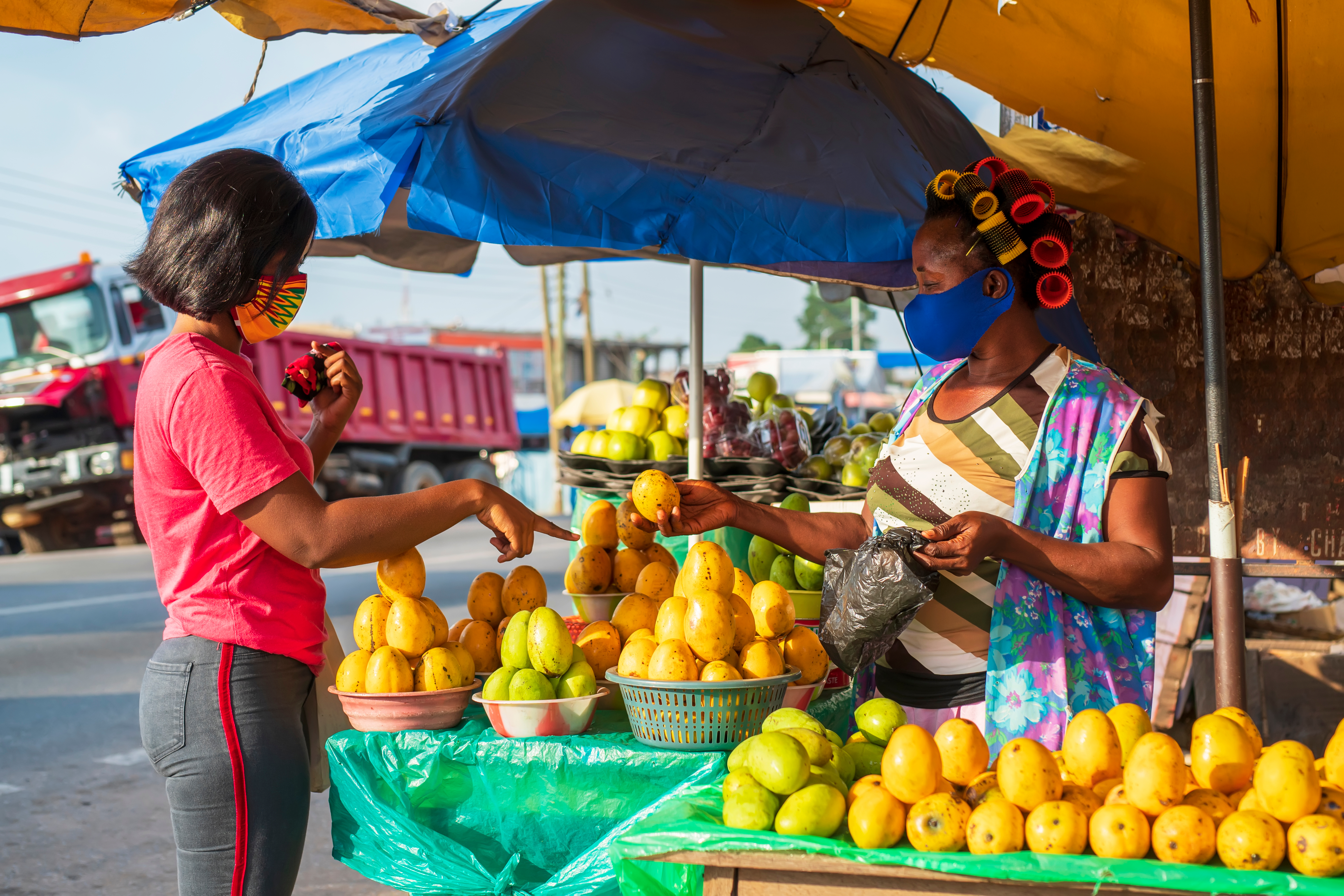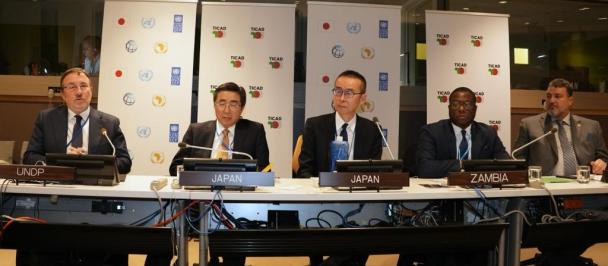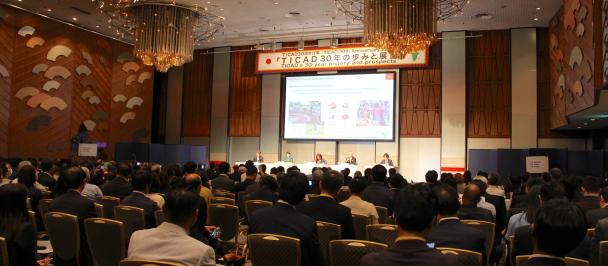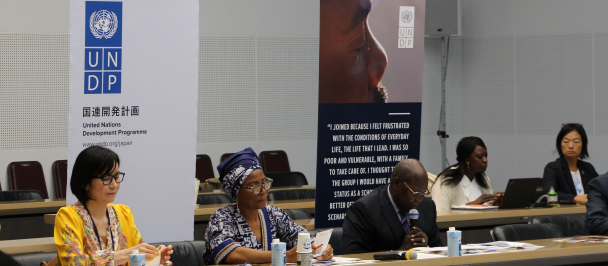The COVID-19 pandemic has resulted in unprecedented global health, economic and financial repercussions. Among its myriad adverse effects, the pandemic is also characterised by a sharp slowdown in economic activity around the world – and Africa has been left especially vulnerable.
UNDP (United Nations Development Programme) has been supporting countries since the very early stages of the COVID-19 pandemic, responding to a growing volume of requests from countries to help them prepare for, respond to and recover from the pandemic, mobilizing various assets and operational mechanisms including Rapid Response Facility. In June 2020, as part of its efforts to assist countries faced with challenges of the COVID-19 pandemic, UNDP and Japan partnered and kick-started support in 29 countries through the global project ‘Supporting an Inclusive and Multi-Sectoral Response to COVID-19 and Addressing its Socio-Economic Impact’.
In Mali and Ethiopia for instance, countries where most of the population rely heavily on informal business to sustain their livelihoods, small and medium-sized enterprises (SMEs) have been particularly hard hit, and some even forced to shut down due to the impact of the virus on their daily operations.
For Mali, the most recent official forecasts estimate the growth rate of the Malian economy at 0.9 percent, compared to an initial projection of 5 percent, according to the UN Capital Development Fund (UNCDF).
Similarly, in Ethiopia, the effect of the pandemic is having a dire impact on SMEs and communities are struggling to make ends meet through their informal businesses.
Recognising the socio-economic disruptions created by the pandemic in these two countries, the Japan International Cooperation Agency (JICA), together with UNDP are providing much-needed support to help tackle the negative and lasting socio-economic effects of COVID-19 on SMEs and on the achievement of the Sustainable Development Goals.
MALI
Through UNDP’s ‘Supporting an Inclusive and Multi-Sectoral Response to COVID-19 and Addressing its Socio-Economic Impact in Mali’, JICA aims to jointly support the implementation of the Government of Mali's Global Action Plan to respond to the COVID-19 pandemic in terms of preparedness, prevention, and response.
Additionally, UNDP and JICA are working together to explore collaboration to support recovery measures to reduce the impact of the crisis on the living conditions of the most vulnerable groups of the population.
In accordance with the Government of Mali’s three immediate priorities (prepare, respond, and recover), the UNDP-JAPAN project is focussing on the following aspects:
- Training of health professionals across regions: Capacity building of 282 community health workers, including 181 women, has improved their knowledge to fight against the spread of the virus, to take care of confirmed cases and refer them to the health structures in charge of management, to trace contact cases and to sensitize the most vulnerable groups on the existence of the disease and on the negative health and socio-economic impacts of COVID-19 in Mali’s remote communities.
- Capacity building of 252 direct young beneficiaries of 41 local textile cooperatives and enterprises: 252 direct beneficiaries of 41 local textile cooperatives and enterprises whose capacities were strengthened in entrepreneurship skills by adopting the UNDP 3X6 approach and the KAIZEN method to make 267,289 reusable masks for the most vulnerable. These capacity building activities enabled these young people to improve the quality of mask production, productivity of their cooperative enterprises, to strengthen their savings and business management capacities to facilitate the rebuilding of their livelihoods in preparation for post-COVID-19 recovery.
Importantly, this partnership in Mali was inspired by the successful lessons learnt and good practices in Cameroon and Central African Republic. Aiming to improve productivity and efficiency, the KAIZEN method has been frequently utilized in the training of local SMEs in Cameroon. Trained by JICA, Cameroon nationals form a group of TOP KAIZEN consultants who provide training to national SMEs. In the case of Mali, one of the TOP Kaizen Cameroon national consultants contributed to the training session virtually to ensure quality mask production. In CAR, using the KAIZEN method, a locally produced mask met standards required by WHO which assisted in the quick distribution at the local level.
- Sensitisation of vulnerable groups against the spread of the virus and the negative effects of the pandemic: 936,697 beneficiaries including 462,849 women were sensitised against the spread of the virus from May to December in Bamako and Mopti. Sensitisation of vulnerable groups against the spread of the virus and the negative effects of the pandemic allowed this group of people to believe in the existence of the disease, to respect the barrier measures to fight against the spread of the virus, and to mitigate the negative socio-economic effects of the pandemic.
ETHIOPIA
Much the same as with Mali, UNDP’s “Supporting an Inclusive and Multi-Sectoral Response to COVID-19 and Addressing its Socio-Economic Impact in Ethiopia” approach to support Micro, Small and Medium Enterprises (MSMEs) follows the three objectives of prepare, respond, and recover.
However, in the Ethiopian setting, the overall approach to supporting MSMEs centres around five pillars, which are as follows:
- Provide forward-looking market intelligence.
- Facilitate market access and build inclusive markets including with multinational corporations.
- Accelerate digital transformation.
- Deploy financing for Micro Small and Medium Enterprises and local governments (MSMEs) with UNCDF.
- Strengthen ecosystems for MSMEs to survive and grow. Pillars can be pursued with national and local governments, directly with MSMEs, and with large companies to better include and support MSMEs in their supply chain.
JICA remains committed to the concept of human security, enabling local communities to have a more decisive role in planning, executing and maintaining development projects to ensure a better future for vulnerable African communities.
Acknowledging a meaningful partnership with JICA, UNDP will continue to proactively engage with the Embassy of Japan in Mali and Ethiopia to ensure that the projects align with and contribute to priorities in both African countries.

 Locations
Locations



